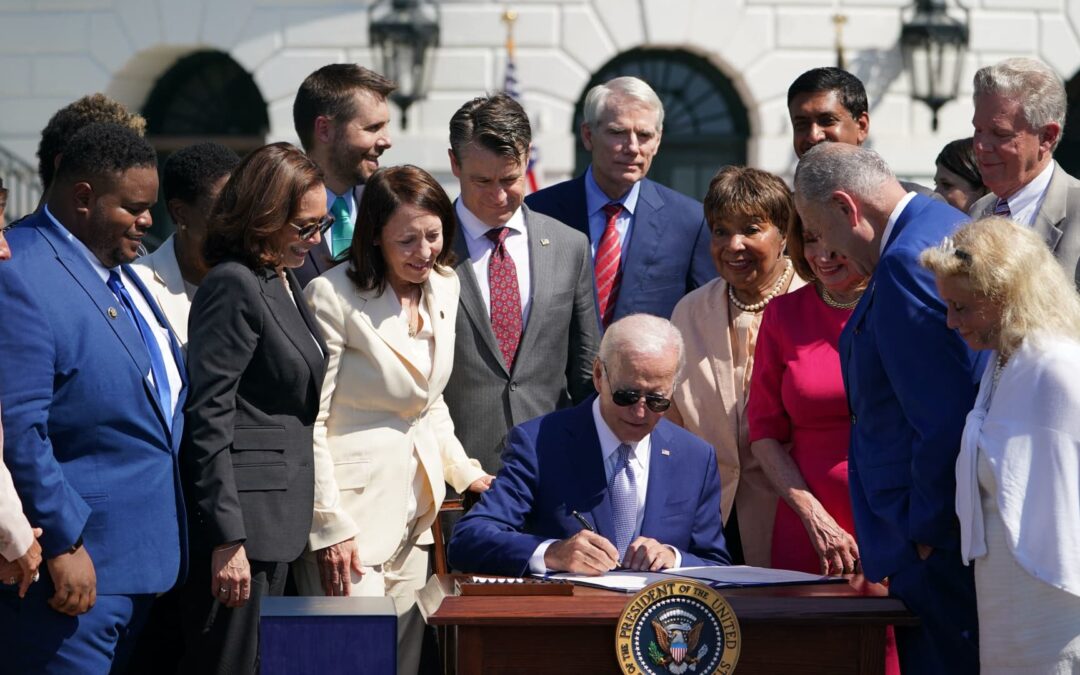US President Joe Biden (C) signs H.R. 4346, the CHIPS and Science Act of 2022, on the South Lawn of the White House in Washington, DC, on August 9, 2022.
Mandel Ngan | AFP | Getty Images
The Biden administration announced over $150 million in geographically targeted federal investments Monday, part of the National Science Foundation’s Regional Innovation Engines program.
10 regional innovation engines will receive funds, and are eligible to receive upwards of $2 billion as part of the program, authorized under the 2022 CHIPS and Science Act. Monday’s awardees include a semiconductor innovation engine in Central Florida, an energy transition engine in Louisiana and an advanced agriculture technology engine in North Dakota.
The program will give initial funding to help researchers and students work together with companies to supercharge regional ecosystems. This includes more $150 million in federal investment, or $15 million per hub, and another $350 million in matched contributions from non-federal partners. Each NSF engine includes coalitions of higher education institutions, small businesses and state and local governments.
“The Chips and Science Act is starting to achieve it’s critically important goal of spurring innovation and creating good paying jobs in communities in every part of America,” said Arati Prabhakar, director of the White House Office of Science and Technology Policy .Prabhakar told reporters at a briefing Friday.
The bipartisan CHIPS and Science Act, signed by President Joe Biden in 2022, has led to over $200 billion in private investment and over 40,000 jobs in the semiconductor ecosystem, according to the Commerce Department.
The U.S. only produces about 10% of global chip supply, and the bill aims to restore America’s position as a global leader in semiconductors.









